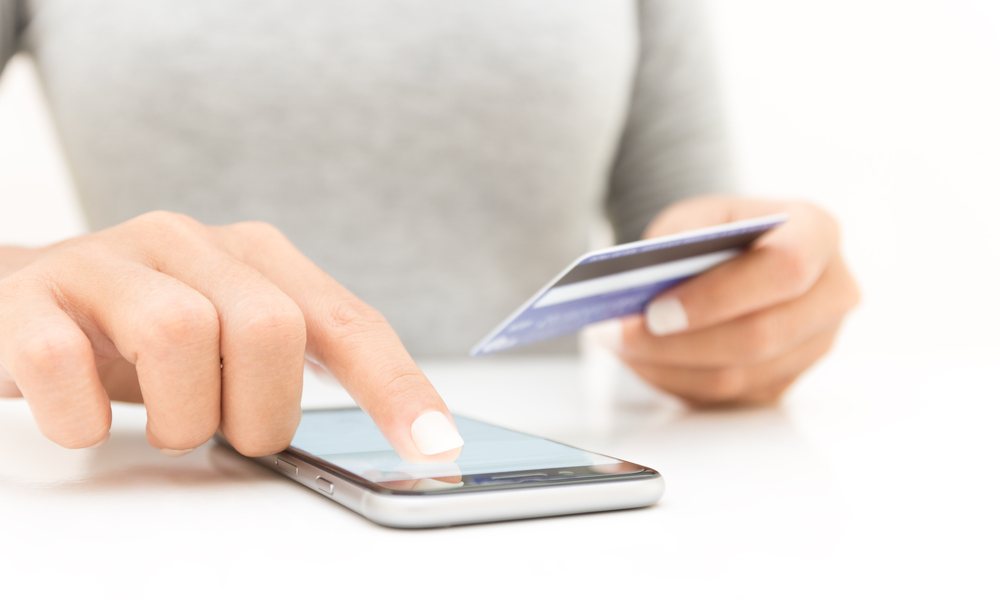Apple and Goldman Sachs Preparing to Release New ‘Apple Pay’ Credit Card with Financial Health Tracking
 Credit: blackzheep / Shutterstock
Credit: blackzheep / Shutterstock
Toggle Dark Mode
Apple is on track for its plans to release a credit card in partnership with Goldman Sachs this year, a move that was reported last spring after Apple entered into a financing partnership with the banking and investment group.
Now, The Wall Street Journal is reporting that the company plans to start issuing the joint credit card as soon as this spring, along with unique new iPhone features that will help users to manage their money through the use of the card.
Citing people familiar with the matter, Apple is already preparing to roll out the card to its own employees for testing in the coming weeks, in preparation for the official launch “later this year.” Cardholders will also apparently have access to special features built into Apple’s Wallet app to help them set spending goals, track rewards, and manage balances.
Apple’s partnership with Goldman Sachs would presumably replace its current deal with Barclays, under which the company sponsors a branded Apple Rewards VISA card. The Barclays reward card currently offers special financing arrangements on Apple purchases, extra rewards points for money spent at Apple and the ability to redeem rewards for Apple gift cards. The Goldman-backed card is expected to offer cash back of about 2 percent on most purchases, and possibly more for purchases of Apple hardware and services.
This is a new frontier for both companies. The Apple credit card would actually be Goldman’s first entry into the credit card market, and sources say that the investment giant is putting serious resources into it, budgeting $200 million to add customer support call centres and roll out an internal payment processing system. The card will also reportedly use the Mastercard payment network. Goldman took its first foray into consumer finance three years ago with its online bank, Marcus, and is hoping that its new card will help lure Apple’s loyal following of wealthy and tech-savvy young adults into its banking service as well.
Apple is also reportedly already working on new features in the Wallet app that would help to promote “financial health,” such as encouraging users to pay down their credit card debt, even possibly borrowing designs from Apple’s Activity app such as using “rings” to track users’ daily financial goals. Other features might include sending users notifications about their spending habits and alerting them to unusual spending patterns. While there are numerous third-party banking apps that already provide some of these features, the integrated nature of Apple’s Wallet app could provide some exclusive advantages for holders of the new card.
While it’s not entirely clear, the report from the Journal also implies that the Goldman-Sachs “Apple Pay” card may actually take the form of an entirely virtual card loaded into Apple Pay, rather than a physical card. In fact, sources say that Apple and Goldman executives actually discussed making the new card the default in the Apple Wallet app, but were precluded from doing so by Apple’s contracts with other banks. Regardless, the two companies appear to be forming a much tighter partnership than Apple had with Barclays, and have discussed even more comprehensive financial management offerings, but Apple has been reluctant to cross into any features that would involve access to people’s bank accounts due its staunch stance on privacy.
For Apple’s part, the Apple Pay card will likely supply another source of ongoing revenue for Apple at a time when it’s trying to bolster its services business on as many fronts as possible. Apple would presumably take a cut of the transaction fees from the new card, in addition to those fees that it already collects from every Apple Pay transaction. Sources say that Apple is also hoping that the card itself will promote even more widespread use of Apple Pay among both merchants and consumers, which has still been slow to gain traction in the U.S.






